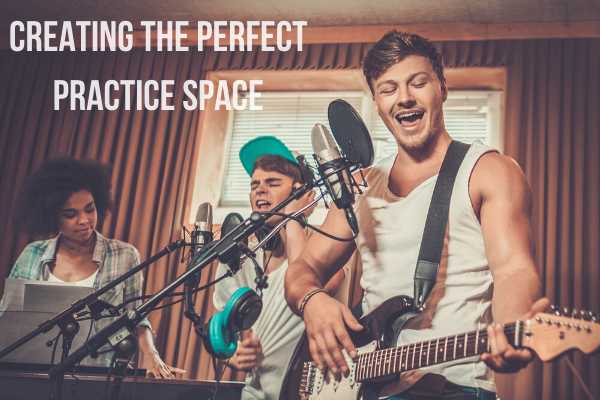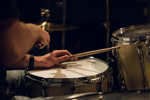Creating the Best Practice Space for Musicians
As a dedicated musician, you've likely found yourself practicing in less-than-ideal locations, from a closet surrounded by dirty laundry to the back seat of your car under the cloak of night.
Perhaps you've even strummed your acoustic guitar or tapped out drum rhythms on makeshift pillow sets in secluded park corners.
Navigating the challenges of finding a suitable practice space, whether due to travel, late work hours, staying with friends, or living in an apartment with strict noise policies, is a common struggle for musicians.
Creating the perfect practice environment is essential for honing your craft.
A well-designed music practice space caters to your learning needs and fuels your creativity, making daily practice sessions a joy rather than a chore.
In this article, we'll explore critical considerations for developing your ideal practice space, ensuring it supports your journey toward musical mastery.
Table of Contents
Things You Need For Your Practice Space
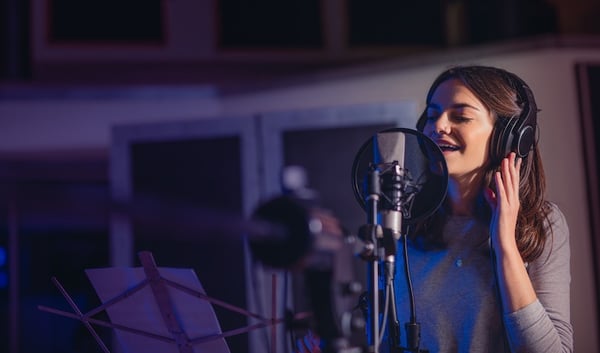
To optimize your practice time, it's crucial to have all necessary items within reach.
Interruptions to fetch sheet music or a pencil can disrupt your focus and flow.
Before diving into your music practice, ensure your productive practice space is equipped with:
- All your music books, sheet music, or TABS
- A sturdy music stand
- A pencil, sharpener, eraser, and notepad for jotting down notes
- A reliable metronome for maintaining rhythm
- A timer to keep track of your practice sessions without constantly checking the clock
- Your instrument, ready and tuned
- A tuner for precise pitch adjustment
- A glass of water to stay hydrated during your session
By maintaining a well-prepared practice space, you'll find practicing not only easier but also more enjoyable.
This dedicated space becomes a special sanctuary for honing your skills and nurturing your musical growth.
Avoid Distractions

The presence of others can significantly impact your practice sessions.
Beyond the immediate social distractions, the subtle sense of self-consciousness that arises when others can hear you can be even more disruptive.
This feeling is akin to the nerves experienced during public speaking or performances.
Social interactions can sometimes enhance performance but also hinder it by detracting from your focus.
The mere awareness of being listened to can shift your attention, regardless of whether the feedback is positive or negative.
To maximize your daily practice routines, it's crucial to establish a practice space where interruptions are minimized and privacy is ensured.
This also isn't the time for social media, television, or pets.
Dedicate a specific part of your day to practice, creating a sacred time and space free from external distractions.
By doing so, you'll foster a more productive practice environment that allows you to fully immerse yourself in your music.
Comfort is Key
Ensuring that your practice space is comfortable is crucial for productive sessions.
Adequate lighting is essential to avoid straining your eyes, and maintaining a comfortable temperature is vital for your focus and well-being.
If your practice involves movement, ensure ample space to move freely without constraints.
A comfortable chair is a must for seated practice sessions.
Opt for a chair that provides proper support and allows for unimpeded movement, catering to your personal preferences and the requirements of your instrument.
Temperature control is also important.
If your practice space tends to get too cold or warm, consider using fans or space heaters to regulate the temperature.
While they may slightly affect the acoustics of the space, a musician who is too cold or too hot will struggle to practice effectively.
Sound
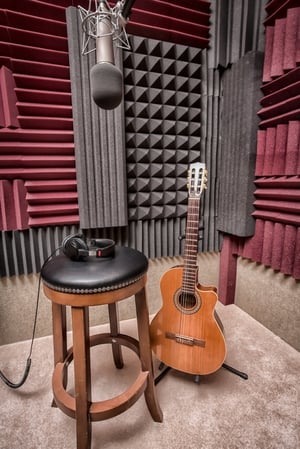
The acoustics of your practice space are crucial for effective music practice.
An empty room may not provide the best sound environment.
Test your instrument in different areas of your home to find the spot with the best acoustics.
For example, the nook in your living room might offer better sound quality than the back of the garage or basement.
Recording your practice sessions is a valuable tool for improvement.
You can capture your playing using an iPad, video camera, or your phone (with notifications turned off to avoid distractions).
This allows you to playback your sessions and identify areas that need refinement.
Consideration for neighbors is also important.
If you're worried about disturbing them, it might inhibit your practice.
While complete soundproofing might not be immediately feasible, there are small steps you can take to reduce noise levels and create a more suitable practice environment.
Check out our guide on soundproofing your rehearsal space here.
Inspiration
Your practice space should be a source of inspiration, a place that ignites your passion for music.
Consider painting the walls a color that uplifts your spirit and decorating the space with items that reflect your musical identity.
Surround yourself with reminders of the musicians who inspired you to pursue music, whether through photos, books, or vinyl records of your idols.
Incorporate elements that resonate with your personal style and preferences.
If a particular musician or band has been a significant influence, make their presence felt in your space.
Keep their recordings within reach for those moments when you need an extra push of motivation.
If nature is your muse, adorn your practice area with posters or artwork depicting serene landscapes or vibrant scenes.
Visualizing yourself playing in these natural settings can enhance your creativity and connection to your music.
Creating a practice space that genuinely inspires you is essential in nurturing your musical journey.
Let it reflect what drives you and a sanctuary where your artistry can flourish.
Keep Practicing
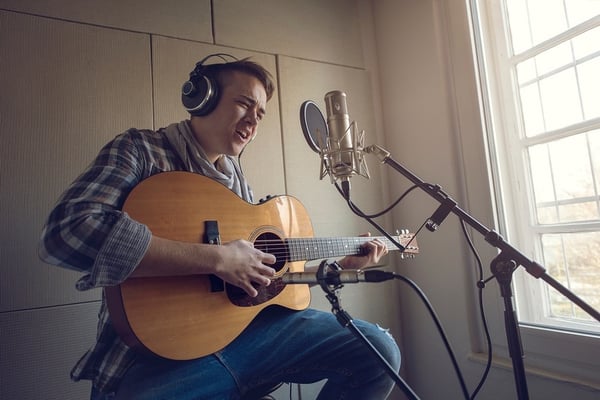
While ideal practice conditions may not always be achievable, adapting to continue honing your skills is essential.
On days when your perfect practice space is unavailable, you might need to use a mute, venture to the park, play softly, focus on different aspects of musicianship, or engage in active listening.
For regular practice sessions, aim to establish a space to play without restraint and concentrate fully, even if it's just a little practice corner.
Seek an environment free from social distractions, where making mistakes is acceptable, and you can freely express yourself at any volume.
For aspiring professional musicians, surrounding yourself with like-minded individuals can be incredibly beneficial.
The Atlanta Institute of Music and Media offers a vibrant community where you can meet, practice, and immerse yourself in music alongside fellow aspiring musicians.
With an instructional environment designed to nurture musical talents and provide the skills needed for today's music industry, you'll be inspired by talented peers and learn from industry-leading instructors.
AIMM offers musicians and producers the following programs:
- Music Production and Audio for Media Degree
- Music and Technology Associate Degree with a Focus in Guitar, Voice, Drums, Bass or Keyboard
- Certificate in Music Production
- Online Certificate in Music and Technology with a Focus in Guitar or Bass
To learn more about the Atlanta Institute of Music and Media, click the button below.
